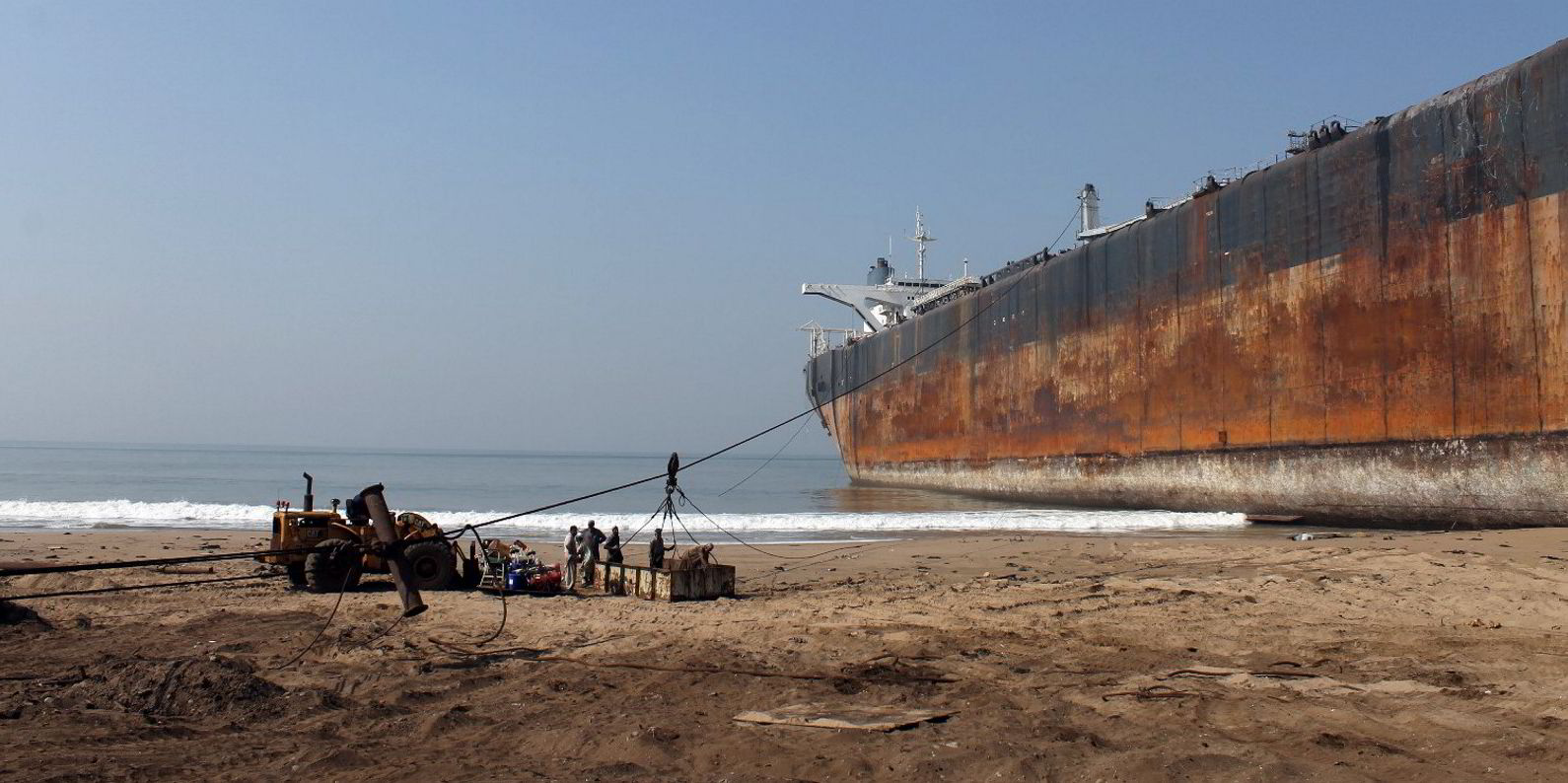European Union-owned ships are increasingly swapping flags before being scrapped to evade the bloc’s recycling rules, according to a new report by shipowner organisation Bimco.
In a critique of its own rules, the EU’s executive arm said that the “more notorious” of the flag-swapping incidents were among larger ships. It announced in November last year that it was reviewing the scheme.
Bimco said its report highlights how more yards from the Indian subcontinent should be improved and placed on an approved list of environmentally sound and safe recycling yards.
New rules became effective in 2018 that meant EU-flagged ships have to be recycled at one of 46 approved yards. The majority are in the EU but others are in the UK, US and Turkey, which has the most active yards on the list.
Elements of the industry have responded to the new regulations by selling vessels, changing flags and pursuing higher prices at less well-regulated yards in India, Pakistan and Bangladesh. Data suggests that EU businesses have controlling interests in more than 35% of the world’s fleet but the bloc scraps just 5.6%, according to the Bimco report.
Until 2018, for every 100 ships that were recycled flying EU member state flags, between 24 and 64 EU vessels changed flag before being recycled, said the European Commission.
From 2019, that number increased to more than 100, the Bimco report said.
EU-flagged ships being recycled in the 27-nation bloc are also getting smaller, with the European industry focused on the needs of the offshore sector.
“Conversely, it appears that an increasing number of bigger ships have changed their flag to non-EU states before being recycled,” said the EU’s ship recycling experts cited by Bimco.
TradeWinds reported in April how the former Cypriot-flagged, 15,400-gt cruise ship Titan (built 1975) was beached at Gadani in Pakistan for recycling.
The Titan is the former Salamis Filoxenia, a ship that until February was owned by Salamis Cruises of Cyprus and flew the Cypriot flag.

There are no EU-approved facilities in India, Pakistan or Bangladesh. The ship transferred through United Arab Emirates and Indian ownership, and was flying the Palau flag when it ended up in Gadani.
Most EU yards have focused attention on newbuilding, repair or military and offshore recycling projects. More than 600 offshore installations are likely to be decommissioned in the next 10 years.
Turkey is the only major ship-recycling nation contributing significant capacity to the EU list, according to the Bimco report. Its yards already have a backlog of cruiseships waiting to be broken up.
Cheap Russian ingots
Data cited in the report from Global Marketing Systems, a large cash buyer for scrap, said that prices in the Indian subcontinent were more than double those for Turkish yards in August.
Turkish ship recyclers said they were struggling to secure higher prices as local steel yards are running at only 10% because of the energy crisis and the market is flooded with cheap Russian ingots.
Bimco said the report — Report on the European List of Ship Recycling Facilities — highlighted the need for more non-EU yards to be included on the approved list.
“Today, there are still no facilities from the main recycling states such as India, Bangladesh or Pakistan included on the EU list to meet the demand for recycling of larger ships,” said Bimco secretary general David Loosley.
Since 2016, 27 Indian ship-recycling facilities have applied to join the EU list but none have been accepted.
Many of the yards had upgraded facilities and standards, said Loosley. “We believe the focus on getting some of these facilities added to the list should be increased.”





